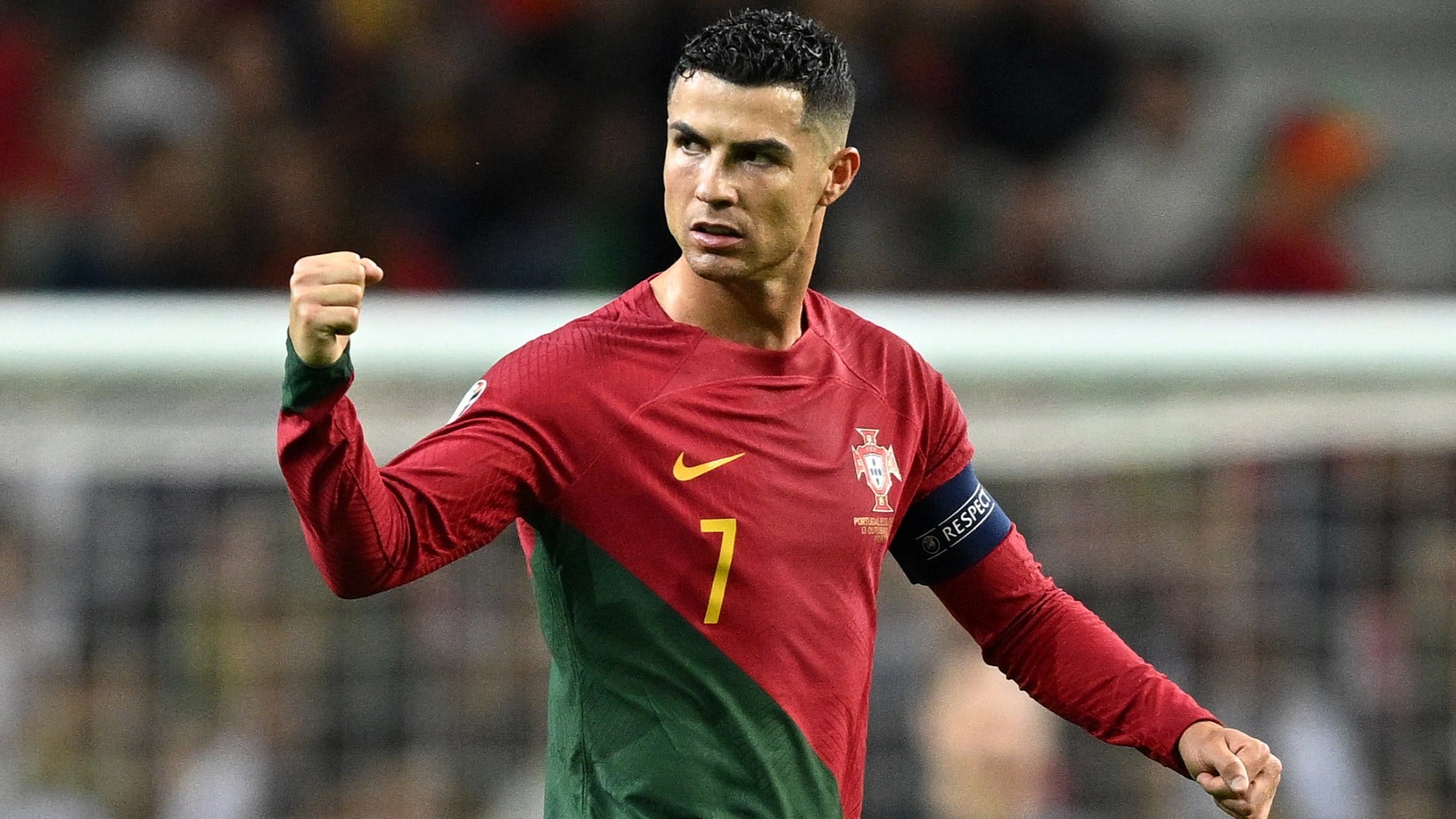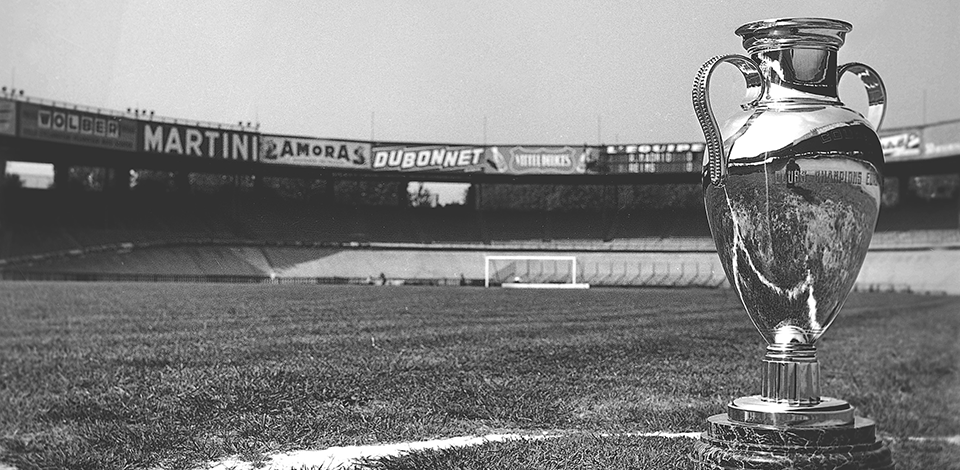UEFA Champions League Winners: 1955-56 Real Madrid

The UEFA Champions League (historically known as the European Cup and mostly abbreviated worldwide as the UCL) is an annual club association football competition organised by the Union of European Football Associations (UEFA) and contested by top-division European clubs, deciding the competition winners through a round robin group stage to qualify for a double-legged knockout format, and a single leg final. It is the most watched club competition in the world and the third-most watched football competition overall, behind only the UEFA European Championship and the FIFA World Cup. It is one of the most prestigious football tournaments in the world and the most prestigious club competition in European football, played by the national league champions (and, for some nations, one or more runners-up) of their national associations.
Introduced in 1955 as the Coupe des Clubs Champions Européens (French for European Champion Clubs' Cup), and commonly known as the European Cup, it was initially a straight knockout tournament open only to the champions of Europe's domestic leagues, with its winner reckoned as the European club champion. The competition took on its current name and format in 1992, adding a round-robin group stage in 1991 and allowing multiple entrants from certain countries since the 1997–98 season. It has since been expanded, and while most of Europe's national leagues can still only enter their champion, the strongest leagues now provide up to four teams. Clubs that finish next-in-line in their national league, having not qualified for the Champions League, are eligible for the second-tier UEFA Europa League competition, and since 2021, for the third-tier UEFA Europa Conference League.
In its present format, the Champions League begins in late June with a preliminary round, three qualifying rounds and a play-off round, all played over two legs. The six surviving teams enter the group stage, joining 26 teams qualified in advance. The 32 teams are drawn into eight groups of four teams and play each other in a double round-robin system. The eight group winners and eight runners-up proceed to the knockout phase that culminates with the final match in late May or early June. The winner of the Champions League automatically qualifies for the following year's Champions League, the UEFA Super Cup, the FIFA Club World Cup and as of 2024 the new FIFA Intercontinental Cup which serves as a replacement for the previous annual format of the Club World Cup.(This format will be changed once again as of 2024)
Spanish clubs have the highest number of victories (19 wins), followed by England (15 wins) and Italy (12 wins). England has the largest number of winning teams, with six clubs having won the title. The competition has been won by 23 clubs, 13 of which have won it more than once, and eight successfully defended their title. Real Madrid is the most successful club in the tournament's history, having won it 14 times and the only club to have won it three times consecutively (in the years 2016, 2017 and 2018), which occurred with Zinedine Zidane as head coach. Only one club has won all of their matches in a single tournament en route to the tournament victory: Bayern Munich in the 2019–20 season. Manchester City are the current European champions, having beaten Inter Milan 1–0 in the 2023 final for their first title.
Cristiano Ronaldo holds the records for most appearances (183), goals (140) and assists (42). Here the link is that has all Cristiano Ronaldo's UCL goals;
https://youtu.be/UK5cu3LJ9qk?si=6gxD9mAmbjZ6KBse
Here are the UEFA Champions League winners up to the 2023-2024 season:
1955-56: Real Madrid1956-57: Real Madrid
1957-58: Real Madrid
1958-59: Real Madrid
1959-60: Real Madrid
1960-61: Benfica
1961-62: Real Madrid
1962-63: AC Milan
1963-64: Inter Milan
1964-65: Inter Milan

1966-67: Celtic
1967-68: Manchester United
1968-69: AC Milan
1969-70: Feyenoord
1970-71: Ajax
1971-72: Ajax
1972-73: Ajax
1973-74: Bayern Munich
1974-75: Bayern Munich
1975-76: Bayern Munich
1976-77: Liverpool
1977-78: Liverpool
1978-79: Nottingham Forest
1979-80: Nottingham Forest
1980-81: Liverpool
1981-82: Aston Villa
1982-83: Hamburg
1983-84: Liverpool
1984-85: Juventus
1985-86: Steaua Bucharest 1986-87: FC Porto
1987-88: PSV Eindhoven
1988-89: AC Milan
1989-90: AC Milan
1990-91: Red Star Belgrade
1991-92: FC Barcelona
1992-93: Marseille
1993-94: AC Milan
1994-95: Ajax
1995-96: Juventus
1996-97: Borussia Dortmund
1997-98: Real Madrid
1998-99: Manchester United
1999-00: Real Madrid
2000-01: Bayern Munich
2001-02: Real Madrid
2002-03: AC Milan
2003-04: FC Porto
2004-05: Liverpool
2005-06: FC Barcelona
2006-07: AC Milan
2007-08: Manchester United
2008-09: FC Barcelona
2009-10: FC Internazionale Milano (Inter Milan)
2010-11: FC Barcelona
2011-12: Chelsea
2012-13: Bayern Munich
2013-14: Real Madrid
2014-15: FC Barcelona
2015-16: Real Madrid
2016-17: Real Madrid
2017-18: Real Madrid
2018-19: Liverpool
2019-20: Bayern Munich 2020-21: Chelsea
2021-22: Real Madrid
Let's deep dive into 1955–56 European Cup

The 1955–56 European Cup was the first season of the European Cup, UEFA's premier club football tournament. The tournament was won by Real Madrid, who defeated Reims 4–3 in the final at Parc des Princes, Paris, on 13 June 1956.
The participating clubs in the first season of the European Cup were selected by French football magazine L'Equipe on the basis that they were representative and prestigious clubs in Europe. When the tournament started, Real Madrid, Anderlecht, AC Milan, Rot-Weiss Essen, Reims, Djurgården and AGF Aarhus were the reigning champions of their respective national leagues. English champions Chelsea initially agreed to compete and were drawn against Swedish side Djurgården; however, under pressure from the Football League, who saw the tournament as a distraction to domestic football, they later withdrew from the competition, and were replaced by Gwardia Warsaw of Poland. Scottish champions Aberdeen withdrew under similar circumstances, Hibernian were chosen instead. They were considered one of the best teams in Scotland, having won the Scottish title in 1950–51 and 1951–52, but the main reason they were invited was because they were the only team in the country to install floodlights on their grounds. Dynamo Moscow, the champions of the Soviet Union, did not participate due to climatic restrictions. In addition, Holland Sport, Honvéd and AB rejected the opportunity to represent the Netherlands, Hungary and Denmark respectively, being replaced by PSV Eindhoven, Vörös Lobogó and AGF Aarhus. This was also the only UEFA tournament to include a representative of Saarland, unified into West Germany in 1957.
The first round pairings were fixed by the organisers and not drawn as would be the case for all future European Cup matches.
Let's look at the pathway to the finals;

Here the details of the final match;
References;
- "Real Madrid-Servette 1955/56". UEFA. Retrieved 21 November 2019.
- ^ "Real Madrid-Partizan 1955/56". UEFA. Retrieved 21 November 2019.
- ^ "Partizan-Real Madrid". UEFA. Retrieved 23 August 2023.
- ^ "Milan-Real Madrid". UEFA. Retrieved 23 August 2023.
- ^ "AGF-Reims 1955/56". UEFA. Retrieved 23 August 2023.
- ^ "Reims-MTK 1955/56". UEFA. Retrieved 23 August 2023.
- ^ "MTK-Reims 1955/56". UEFA. Retrieved 23 August 2023.
- ^ "Hibernian-Reims 1955/56". UEFA. Retrieved 23 August 2023.
- ^ "Los 11 jugadores nacidos fuera de España con más partidos". 5 September 2016.
- ^ "Alfredo di Stéfano: A god of the stadium | Inside UEFA". 7 July 2014.






































































































